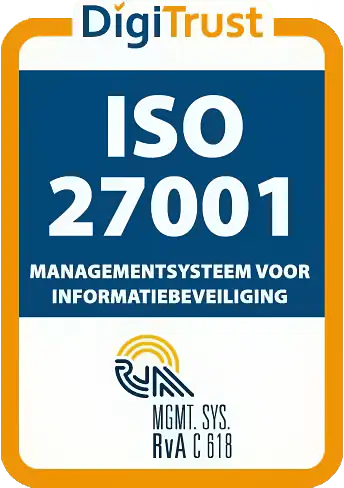“Trust, Autonomy, Movement”
With these words, Fred Vahlkamp, the founder of ManualMaster and Certifeye, and Ilja Botha opened the Quality PopUp event: a day where all eyes were focused on the future. The future of the flower, plant and food industry, but also the future of sustainability, collaboration within supply chains and technological developments that make this possible.
Conference center and restaurant De Dyck located in the picturesque Woubrugge welcomed guests with snacks grown on their own soil. A truly inspiring place to discuss different ways to make the sectors more sustainable.

De Dyck – Woubrugge
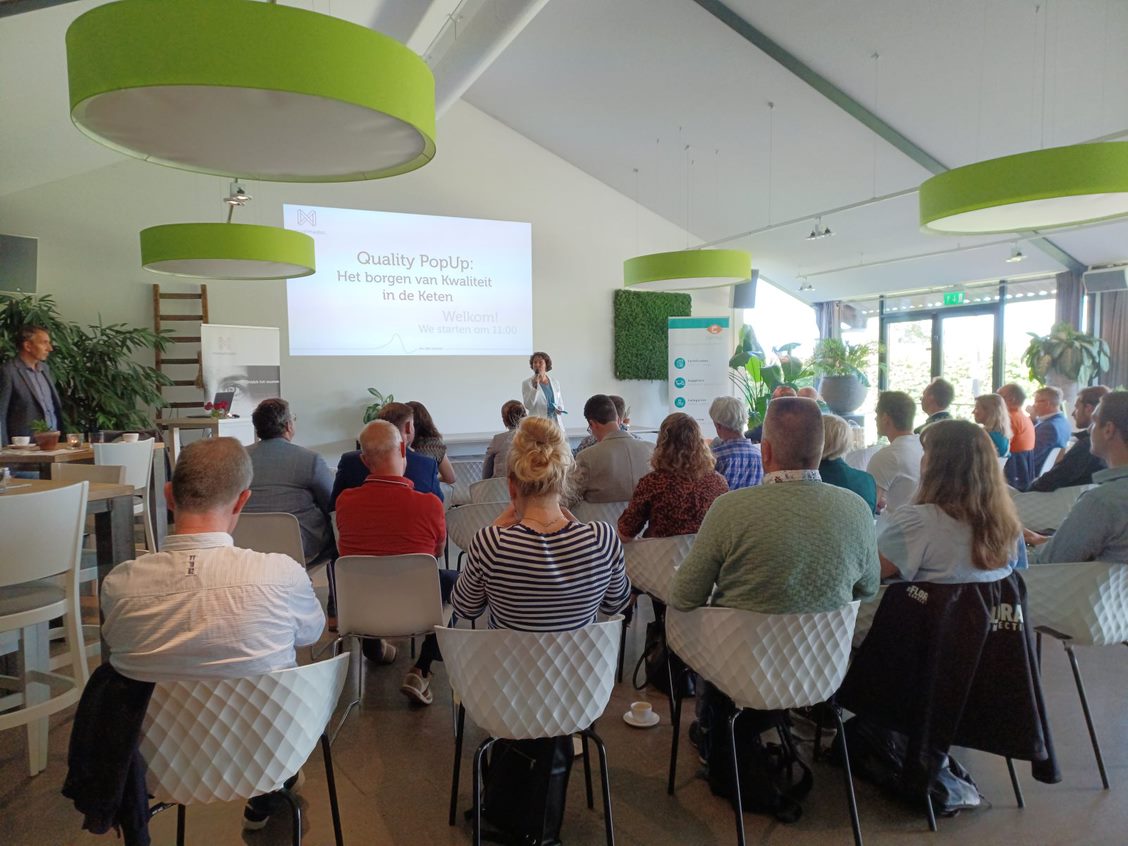
Ilja Botha
Innovation in a Standardized World
The first speaker, Daan de Vries of MPS Groep, took us into the world of standardization and innovation. Some of the introduced concepts were Chain Transparency 2.0, HortiFootprint Calculator, and industry-wide developments such as FSI 2025.
“The first step is taking a good look at how the chains work and mapping out who supplies whom.” explains Daan. “Then various involved companies share the results, which in turn form a complete overview.”
In that regard, sharing data is of great importance. While every member of a chain knows the details of their own customers and suppliers, it can pose a great challenge for a more complex chain. Daan: “What if someone uses pesticides, all the way at the start of a supply chain? If some grower further on in the supply chain wants to farm biologically, this might be a problem, as the pesticides from the start of the chain may kill insects used by the bio grower.” This is why it is crucial to know what is expected in both directions of a chain, in order to guarantee the quality and respect the wishes of the customers. Daan also refers to the end of a chain: “Retail has certain requirements a breeder must respond to, otherwise they can no longer sell their products. So in the end you really have to collaborate and communicate with each other.”
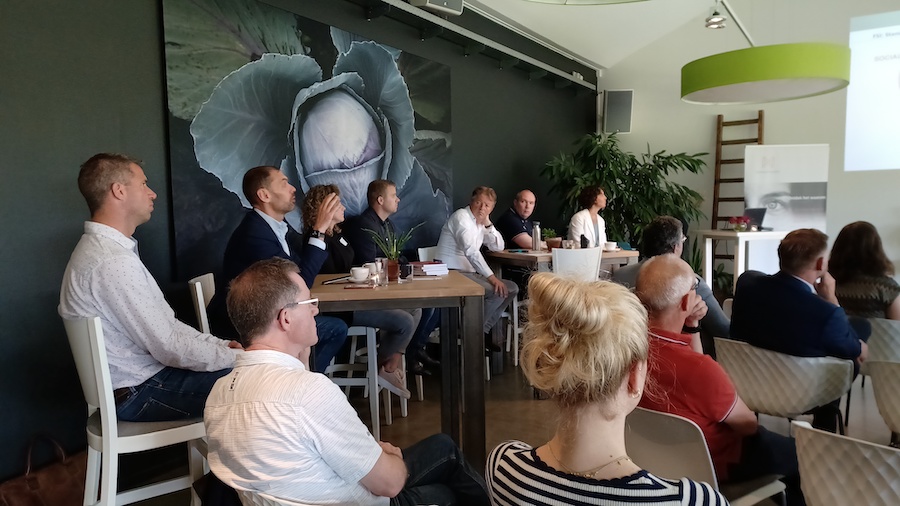
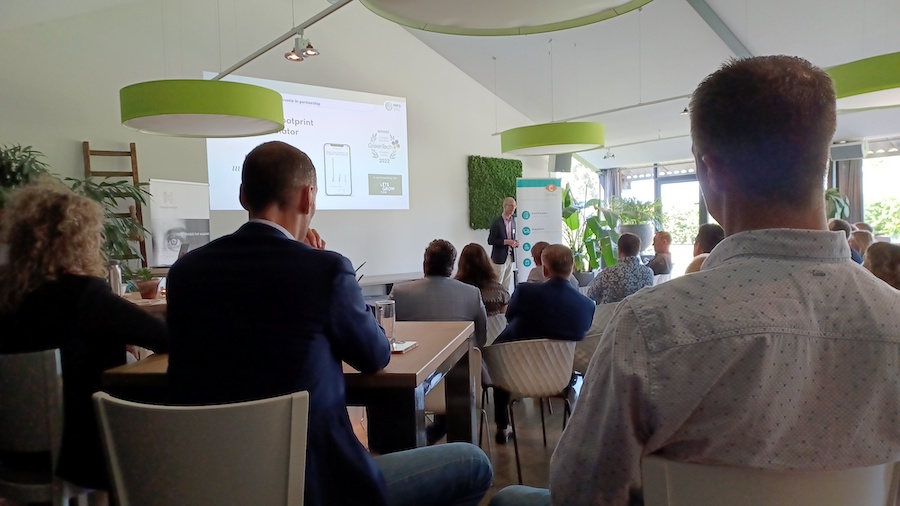
MPS presents a practical example with the Chain Transparency 2.0 project. The streamlined and open communication has led, among other successes, to a 45% reduction of pesticides among MPS-ABC certified companies.
“Collaboration is more intensive than simple data sharing. Organizations need to trust each other with information and their analyses, as the problems that pose a challenge to a single company can be tackled and solved together.” This joint effort, known as non-competitive collaboration, is commonplace in MPS projects and applies as well to the FSI 2025 project that is aiming to achieve 90% sustainable procurement by 2025.
These projects are often based on certification and standardisation. However, certification can also lead to innovation. When in the early 1990s the European Union focused on uniform standards, many companies found a new niche opportunity.
“What you see is that most of those existing certifying organizations have become a top-up. On one hand they form a niche, but at the same time they are the front runners who offer certification to producers who want to develop beyond the common set of standards. This way, they take an extra step towards what they find important.”
Non-competitive collaboration plays an enormous role. It is less common for innovation to happen inside the companies. Instead, it is now taking place between the companies
Daan had a clear answer to the question about the feasibility of achieving sustainability goals within a limited period of time. “When switching from fossil fuels to sustainable energy, for example, you can get stuck on the fact that building a nuclear power plant takes 10 years. How do you do that with goals for 2030? You should think in terms of transitions, continuously taking steps and improving the situation. And then you might just as well complete the energy supply goals in 2050, right?”
Sustainability Dialogues
While enjoying sandwiches and asparagus soup from the restaurant’s vegetable garden, participants spent their lunch exchanging their views on the future of data validation.
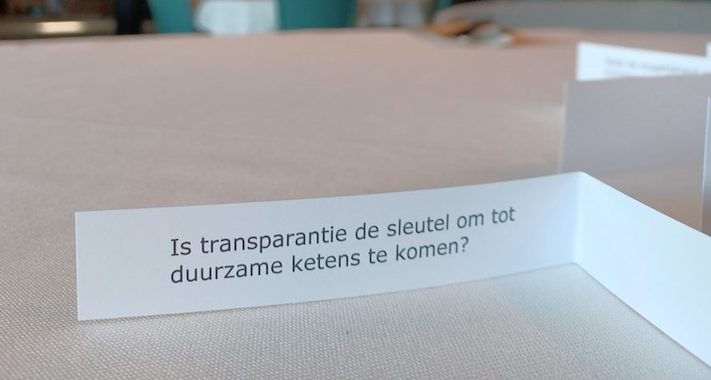
One of the discussed statements
This hearty meal was followed by a tour around the restaurant’s garden. With more than 100 plant species, the garden can sustain the kitchen almost entirely with their own harvest. In the near future, Restaurant de Dyck will expand its business operations to include animals in the circular process. Food residues serve as food for animals, and the animals are ultimately also used in the kitchen.
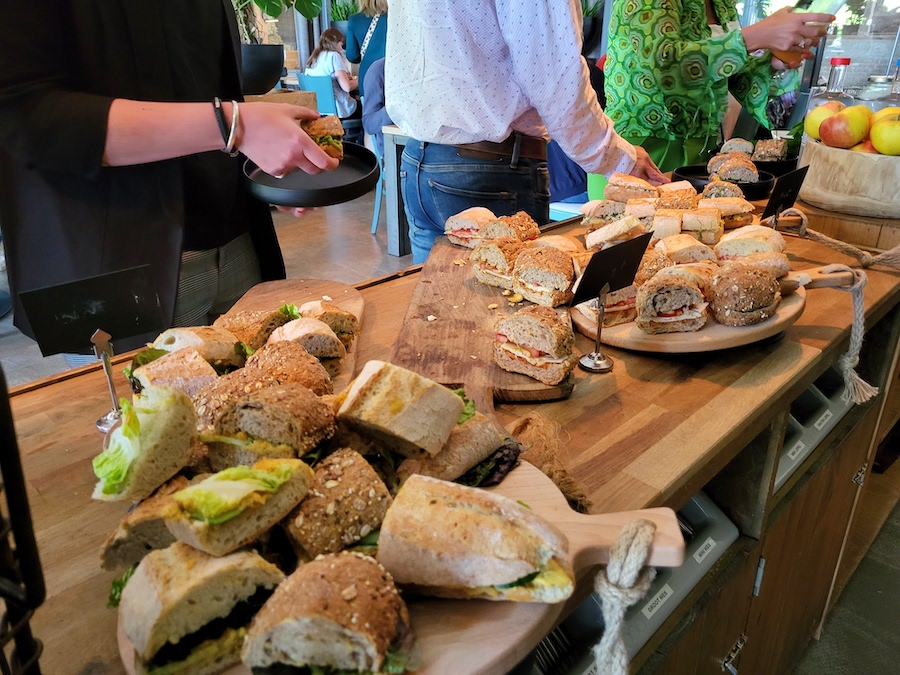
Lunch
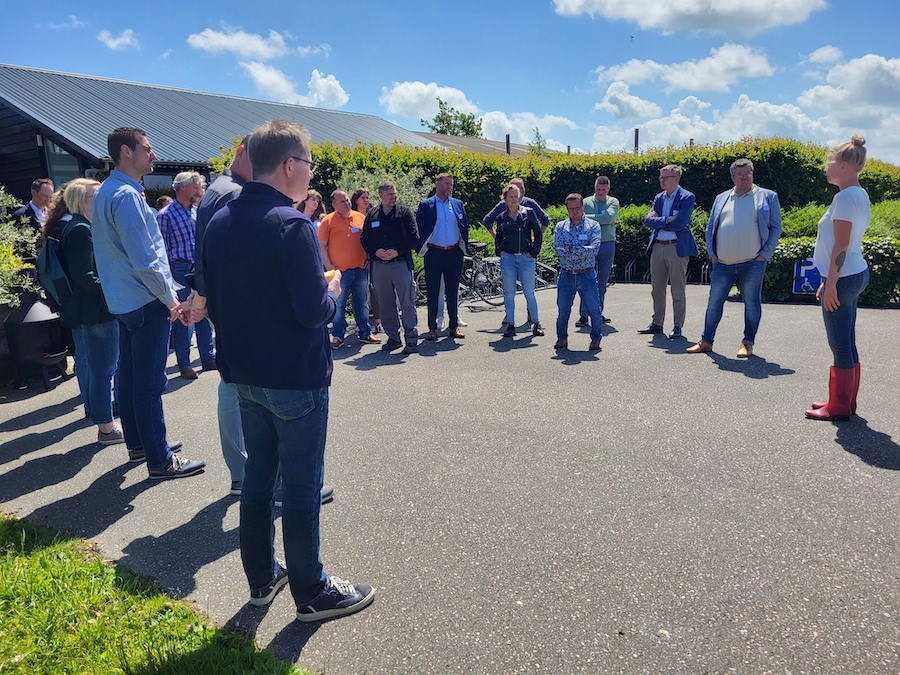
Tour
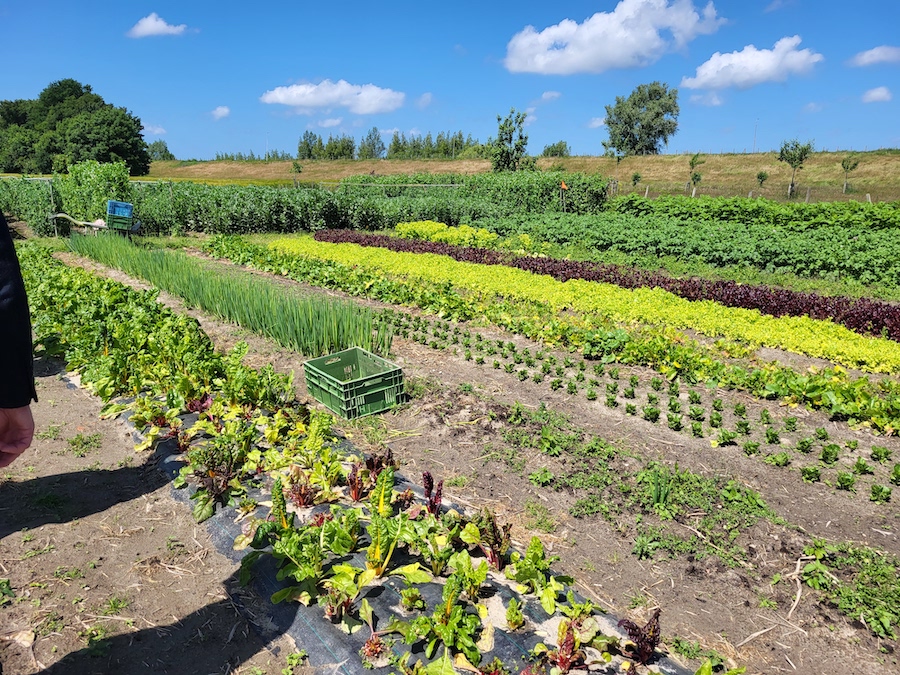
Garden
Goals of the Present and Dreams of the Future
Speaker Koos van der Meij from Wageningen University & Research gave us a bird’s-eye overview of the current and future technology in data validation.
The ecosystem of developments started with mechanization and steam power, followed by mass production, electricity, computers and automation, and finally we have the current “Industry 4.0”: Cyber Physical Systems.
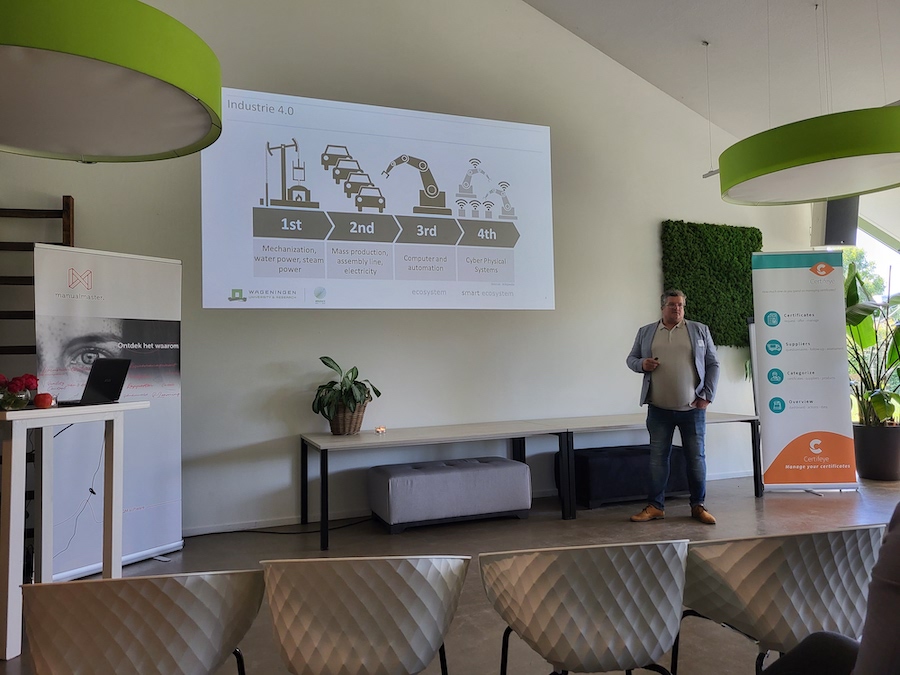
Koos van der Meij
This phase goes hand in hand with supply chain thinking and the data ecosystems associated with them. The data exchange works well as long as each link passes on the information in a way that matches the systems of their relevant relations.
“And what if there is a link in the chain that does not pass on the data? How does that impact the value of your data in the chain?” The solution for this problem is the transition from a supply chain to a supply community. “The flow of goods remains the same, but it’s no longer linear. You then become a spider in the web”. Koos adds: “Standardization is crucial in such a community”.
Besides participants engaged in production and transport or sales, the so-called community services also play a role. These are, for example, certification institutions such as MPS, or software suppliers such as Certifeye. “What value will these services add in the future? Is it necessary for a grower to be certified?” – asks Koos. “The technological equipment can ensure that you do not audit the entire production of a specific supplier every year, instead you certify each product piece by piece”.
Of course, this requires an enormous amount of dataprocessing. It is already going well in many places at the moment. Think, for example, of exercising with a smartwatch or even a simple weather forecast. Koos explains the important elements here: “First of all, we need standardization of data, so that it is consistently clear what expectations are set. Then you have sensor management, for example deciding where the temperature gauge will be placed in a truck with goods. Finally, all this digital data must of course be strongly secured against, among other things, DDOS attacks.”
In the context of data collection in the food industry, Koos names a few scan types: DNA scan, collagen scan and a molecular scan. “Components formed by these different scans lead to a fingerprint of the scanned object. Such a fingerprint shows, for example, how many kilocalories and carbohydrates this apple contains.”
Such technological improvements were made possible by the blockchain technology. The system sends information to the database and links it with the correct type of fruit data. In the future, this information can go directly to the customer, and enable them to check whether the specifications of the apple meet their requirements. Eventually, all this information returns to the scanner.
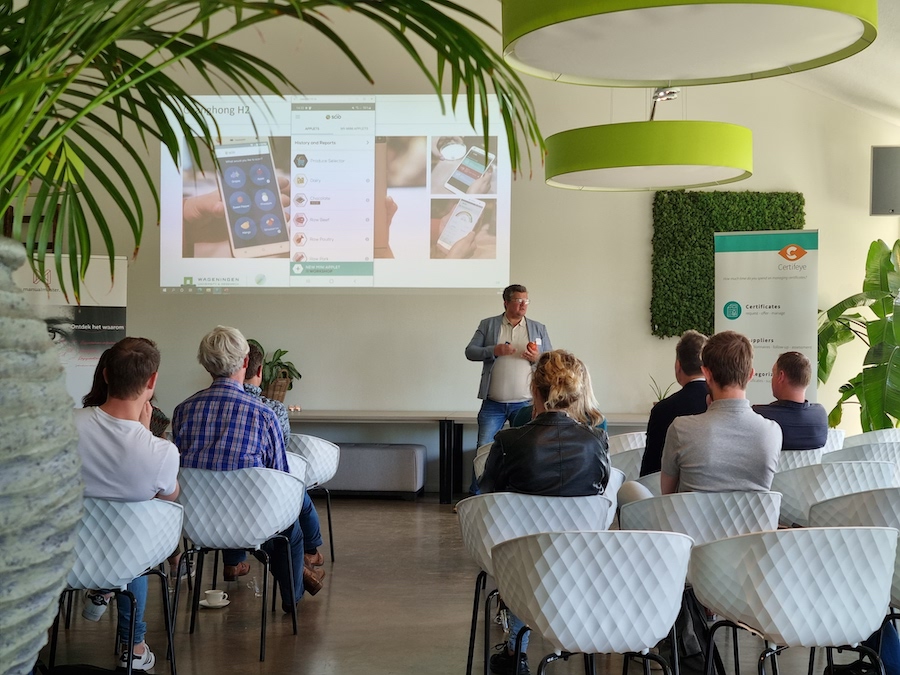
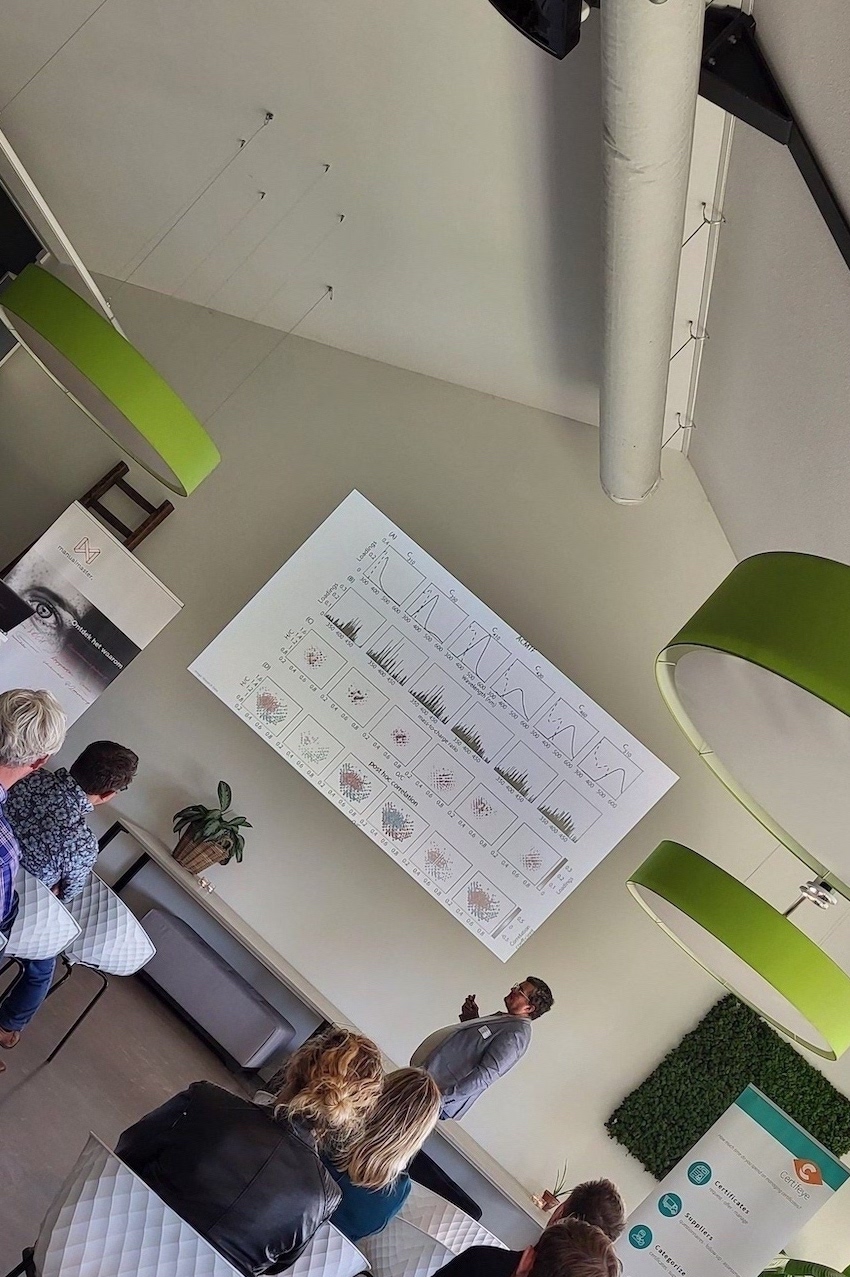
Visitors had a chance to experience this process of food analysis live. During the demonstration of the molecular scanning system called SCIO, people enjoyed watching the extract of an exact composition of an apple without damaging it in any way.
Where will this technology lead us? The public immediately got a taste of these developments. What if a biological barcode could be sprayed on the apple, so that every apple would be identified immediately, even without a sticker? Is fruit taste definable at the molecular level? What consequences will this have for both the hospitality industry and retailers?
Fortunately, we can also discover the taste of an apple the old-fashioned way! This was made possible during the Quality PopUp thanks to the volunteers of De Kleine Wereld from Gorinchem, a school for special needs students, who provided the apples with organic quality stickers at the end. We would like to thank these involved students for their hard work!
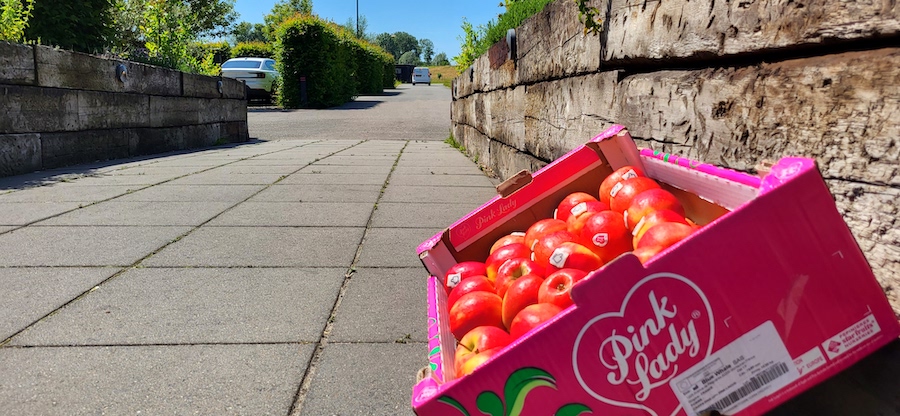
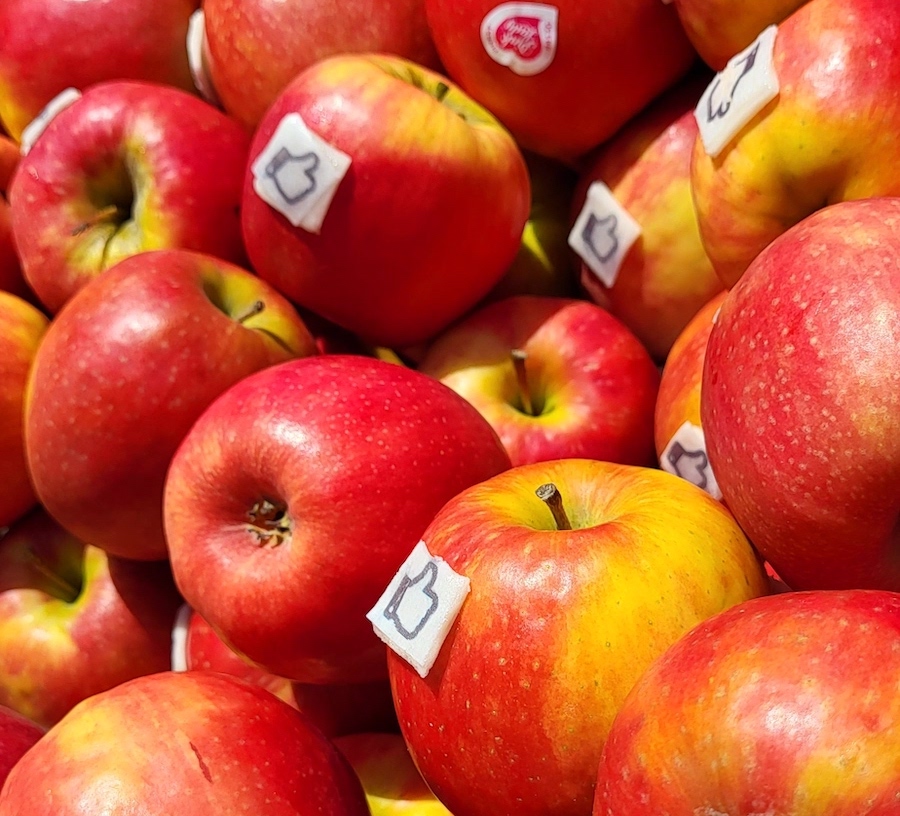
Did you miss this Quality PopUp, but are still interested in the future of data validation and sustainability? Wageningen University & Research will organize the PPP Consortium in 2023, which will include the concept of Circle of Community and safeguarding organic goods. Are you interested? Please contact us through info@manualmaster.com with the subject line: Interest in PPS WUR. You will then receive a call from our colleague involved in the project. In the near future you can also take part in an initial orientation on the University grounds.




